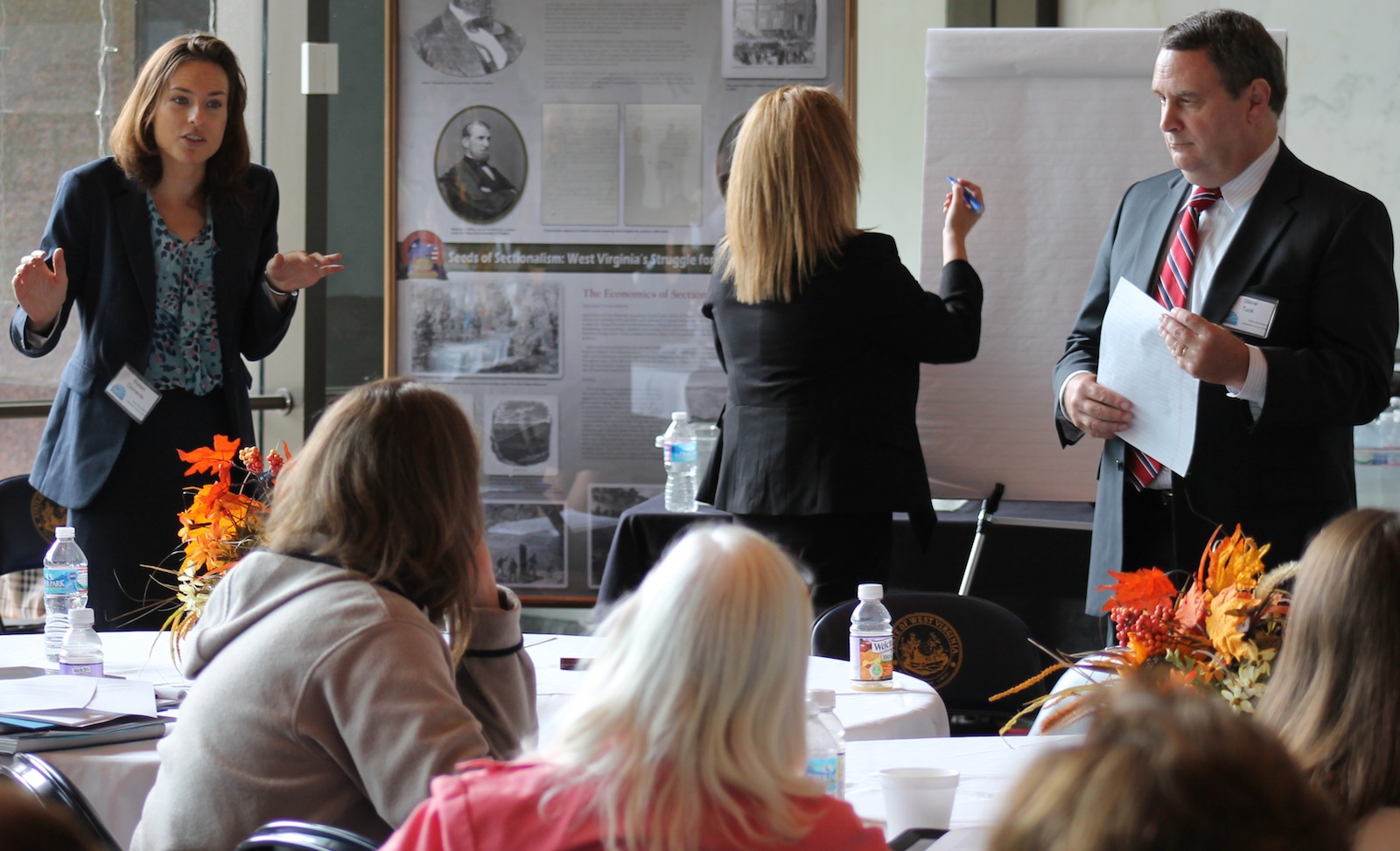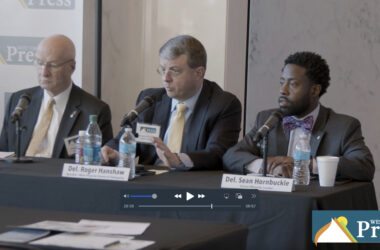Advocates target SNAP funds for soft drinks
Editor’s Note: The following is part of the West Virginia Press Association’s series on the “Our Children, Our Future” Coalition. The association is following the coalition’s efforts to develop and push legislation to combat child poverty during the 2014 session of the West Virginia Legislature.
WVPA Report
CHARLESTON — Five years ago, Dick Wittberg and his staff at the Parkersburg-based Mid-Ohio Valley Health Department organized a massive dental operation.
Wittberg, director of a department that serves six West Virginia counties, had become aware of what he calls the “unbelievable need for dental services in West Virginia.”
So his staff planned a two-day blitz and recruited area dentists to provide care to all comers.
It didn’t work out that way.
About 1,300 people were served, but many more had to be turned away. Wittberg said he was forced to go outdoors and tell people who were ready to wait all night in the rain that the effort was maxed out and they couldn’t be served.
Since then Wittberg’s department has refined its dental efforts. His staff screens people in need of care and sends them to a couple dozen local dentists who treat them voluntarily in their own offices.
But he and his crew now are mounting another battle against the scourge that affects not only the mouths, but also the general health and employment prospects of so many West Virginians.
Like David swinging at Goliath, Wittberg wants to persuade the U.S. government to let West Virginia pilot a major change in the longstanding federal Food Stamp program, now known as the Supplemental Nutritional Assistance Program, or SNAP.
He and his crew want the program to stop allowing recipients to use their benefits to buy soft drinks, which they view as a major contributor to tooth decay. The top offending ingredient is not sugar but citric acid, which breaks down tooth enamel, especially when the beverages are sipped constantly.
“There is nothing we could do to improve the oral health of West Virginians more than to say you can’t buy pop with SNAP.”
Dick Wittberg
Director,
Mid-Ohio Valley Health Department
Wittberg was among 39 co-chairs for 18 initiatives aimed at fighting child poverty that were the focus of a symposium at the statehouse Sept. 24-25.
The two-day “Our Children, Our Future” symposium was the focal point of a series of community meetings and workshops that have pulled dozens of activists into a grass-roots movement to fight child poverty. The West Virginia Coalition for Healthy Kids and Families, the West Virginia Center on Budget and Policy and more than 30 other organizations have been building support for the movement and the symposium in recent months.

Addressing possible Foster Care Reform in West Virginia, from left, Alyson Clements, Angie Hamilton and Steve Tuck poll the audience for recommendations during the first day of the Our Chldren, Our Future Policy Symposium in Charleston, Sept. 24-35. Policy strategy sessions were held at The Culture Center at the Capitol Complex on Sept. 24 and the group spoke to the West Virginia Legislature’s Select Committee on Children and Families on Sept. 25. Photo courtesy of the West Virginia Press Association.
On Sept. 24, about 250 people converged on the Cultural Center for a long day of workshops intended to develop strategies for advancing the initiatives.
With state lawmakers in town for monthly committee meetings, the second day of the Our Children, Our Future symposium moved into the Capitol building.
Members of the House and Senate Joint Committee on Children and Families were briefed on the initiatives, which have been in development over the past several months.
The committee also heard the personal stories of several people who have either overcome poverty or are striving to do so.
An integral part of the highly organized movement is to include such people in the effort. Co-chairs for all 18 initiatives were urged to recruit their participation.
Rick Hodges of Cabin Creek described his struggle as the single parent of an infant daughter after the child’s mother left them. He was then 43 and disabled from a fall incurred during his work as a cable TV contractor.
He discovered the Starting Points program at Sharon-Dawes Elementary School and learned much about parenting. He was taught to buy healthy foods for his little girl, to get her to bed on time and to read to her from a tender age.
Now his daughter is 7 years old and “would rather have a piece of fruit than a piece of candy,” he said.
He spends about 40 hours a week volunteering at her school, he said, and is determined to continue.
“We’re going to keep fighting for a better life for our kids no matter what it takes,” he said.
The 18 initiatives are wide ranging and ambitious. One group hopes to improve the state foster care system. Another is pushing for an increase in the state minimum wage. Still another will fight for more substance abuse treatment.
Many of the proposals would come at significant cost.
Ted Boettner of the West Virginia Center on Budget and Policy is co-chair for an initiative to enact a state Earned Income Tax Credit. Such a federal benefit for low-income families has been in place for many years, and 24 states offer piggyback payments via income tax returns.
Boettner’s group proposes that West Virginia offer families with annual income of up to $50,270 a credit equal to 20 percent of the federal benefit. More than 144,000 families would receive an average payment of $413.
Senate Minority Leader Mike Hall, R-Putnam, a member of the Joint Committee on Children and Families, noted during the meeting that the cost of such a state Earned Income Tax Credit has been estimated at $37 million a year.
Boettner’s organization is among about 15 with seats on the steering committee for the Our Children Our Future movement, but dozens more have signed on to help.
The lead organizer is Stephen Smith, director of the West Virginia Healthy Kids and Families Coalition. Smith, a graduate of Harvard University and the London School of Economics, is the author of “Stoking the Fire of Democracy: Our Generation’s Introduction to Grassroots Organizing.”
Next on the movement’s timeline is a series of community meetings to be held around the state beginning this week and continuing through mid-November.
The movement logged several successes during the last legislative session, including reversal of a proposed rollback in state childcare benefits and enactment of a pilot program to provide free meals to public school students regardless of income. Organizers hope to build on that momentum.
On Dec. 13, all of the partners will vote on a 2014 platform. About five of the 18 initiatives will be chosen for specific pushes during the next regular session.
Wittberg and his crew at the Mid-Ohio Valley Health Department hope to make the cut. They want the Legislature to pass a resolution instructing the state Department of Health and Human Resources to seek federal permission to strike soft drinks from the food stamp program in this state.
Other states have sought such permission with no success, Wittberg said in the workshop he led during the symposium.
However, those states based their requests on obesity rates, and the U.S. Department of Agriculture, which oversees the food stamp program, may have found it difficult to pin the blame for obesity solely on soft drinks.
Wittberg hopes the agency will be more receptive to the dental argument.
Two much bigger states, New York and California, want similar permission, and he thinks a small state like West Virginia may hold appeal as a pilot effort.
“For West Virginia to take the lead on something like this would be really cool,” he said.
“There is nothing we could do to improve the oral health of West Virginians more than to say you can’t buy pop with SNAP.”
For more information on Our Children, Our Future, Stephen Smith may be contacted at ss[email protected].








